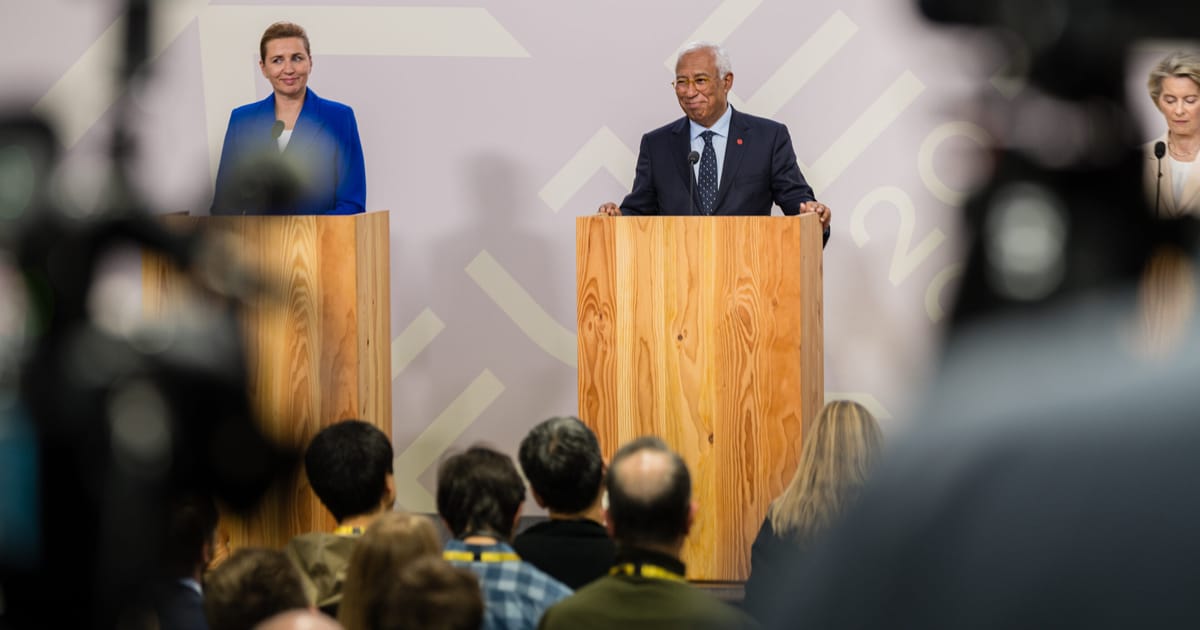“We will have two major topics to discuss: firstly, the competitiveness of European industry and the high, too high, level of regulation in Europe,” Merz told reporters upon his arrival in Copenhagen. “Secondly, unfortunately, we will have to talk again about the war against Ukraine.”
It seemed Merz hadn’t bothered to read the official schedule, which included one session on defense and one on Ukraine. Officials at the summit were under no illusion, though, that his message was tailored toward a domestic audience. The German leader is under increasing pressure to revamp the EU’s biggest economy and deliver on the sweeping reforms and rapid turnaround he staked his election bid on.
4. Royal appointments trump everything else
The end point of the Copenhagen summit was dictated by a dinner invitation. The Danish royals invited EU leaders for dinner at 7 p.m. sharp.
That appointment added the pressure of a deadline. But the session on security and defense took four hours, twice as long as scheduled, because leaders went beyond their pre-written talking points and free-styled answers. Costa, who chaired the meeting, didn’t dare cut the mic given how sensitive the talks were, said an EU official, who denied the talks took longer because of disagreements among leaders.
Leaders eventually made it to the dinner on time. Only von der Leyen, Costa and Fredriksen returned to the summit venue to brief the press.
5. All the members of the club want to decide who can enter
Costa’s idea of fast-tracking Ukraine’s bid to join the EU didn’t work. And that was no surprise.
As POLITICO first reported on Monday, Costa suggested changing EU rules so that formal accession talks could begin with the backing of a qualified majority of leaders, instead of requiring unanimous consent. That was a no-go for the Hungarian prime minister, who is the EU leader closest to Russian President Vladimir Putin. But other countries, including France, the Netherlands and Greece, were also opposed and let the proposal sink.
During the summit, Orbán was one of the few leaders to talk about the plan. And that was to reject it.
